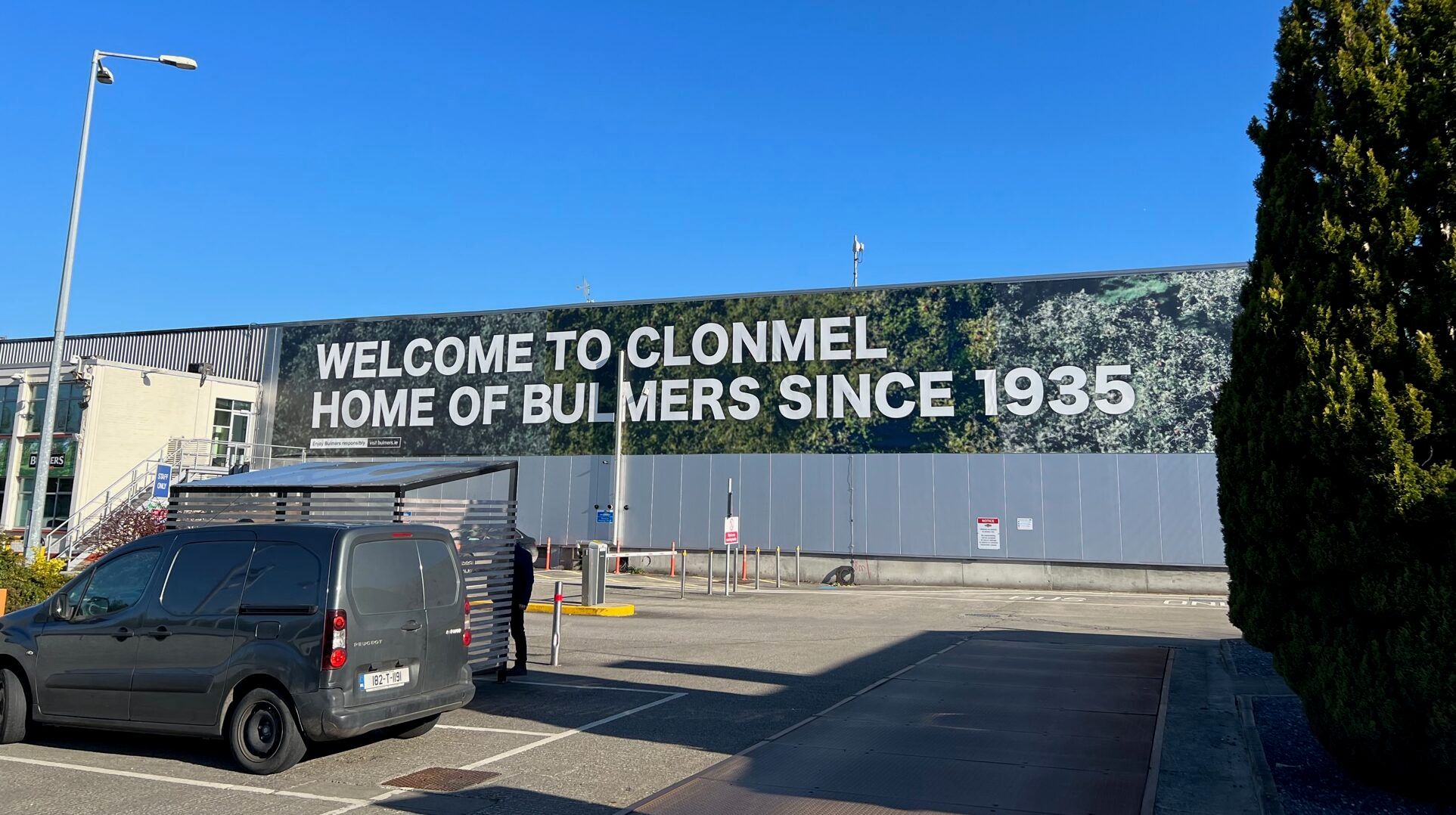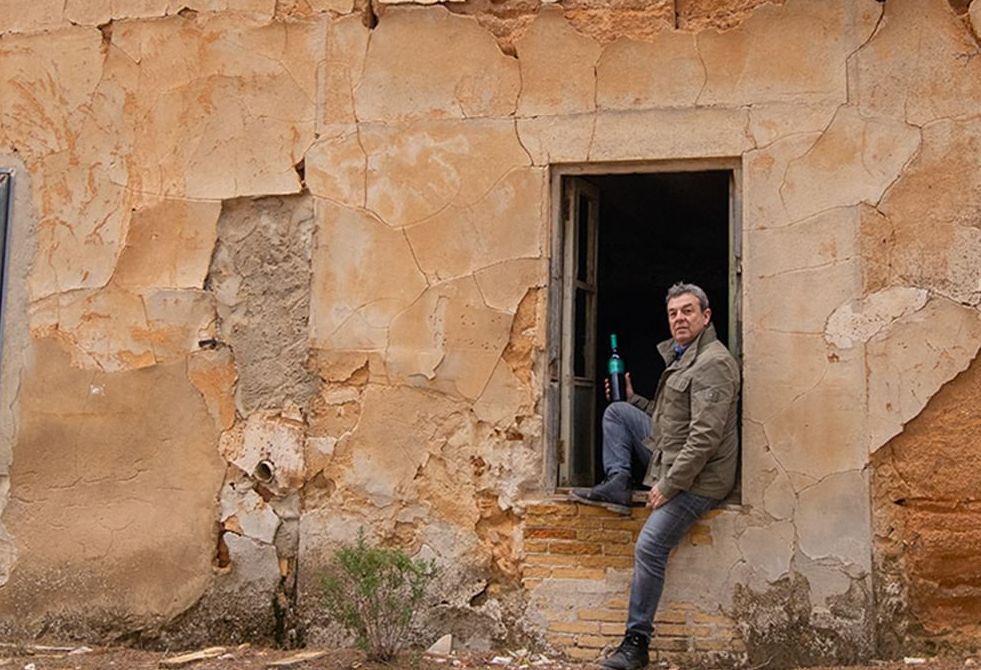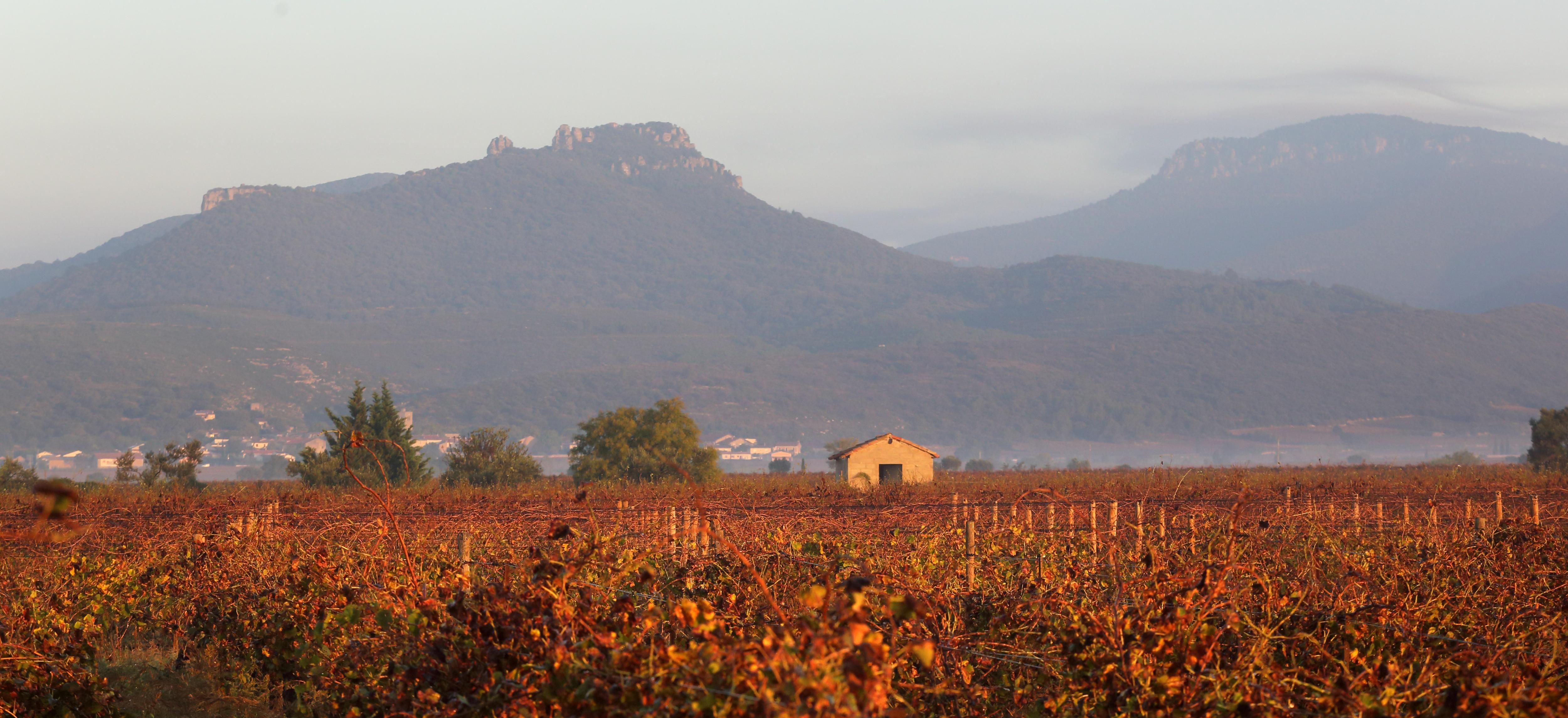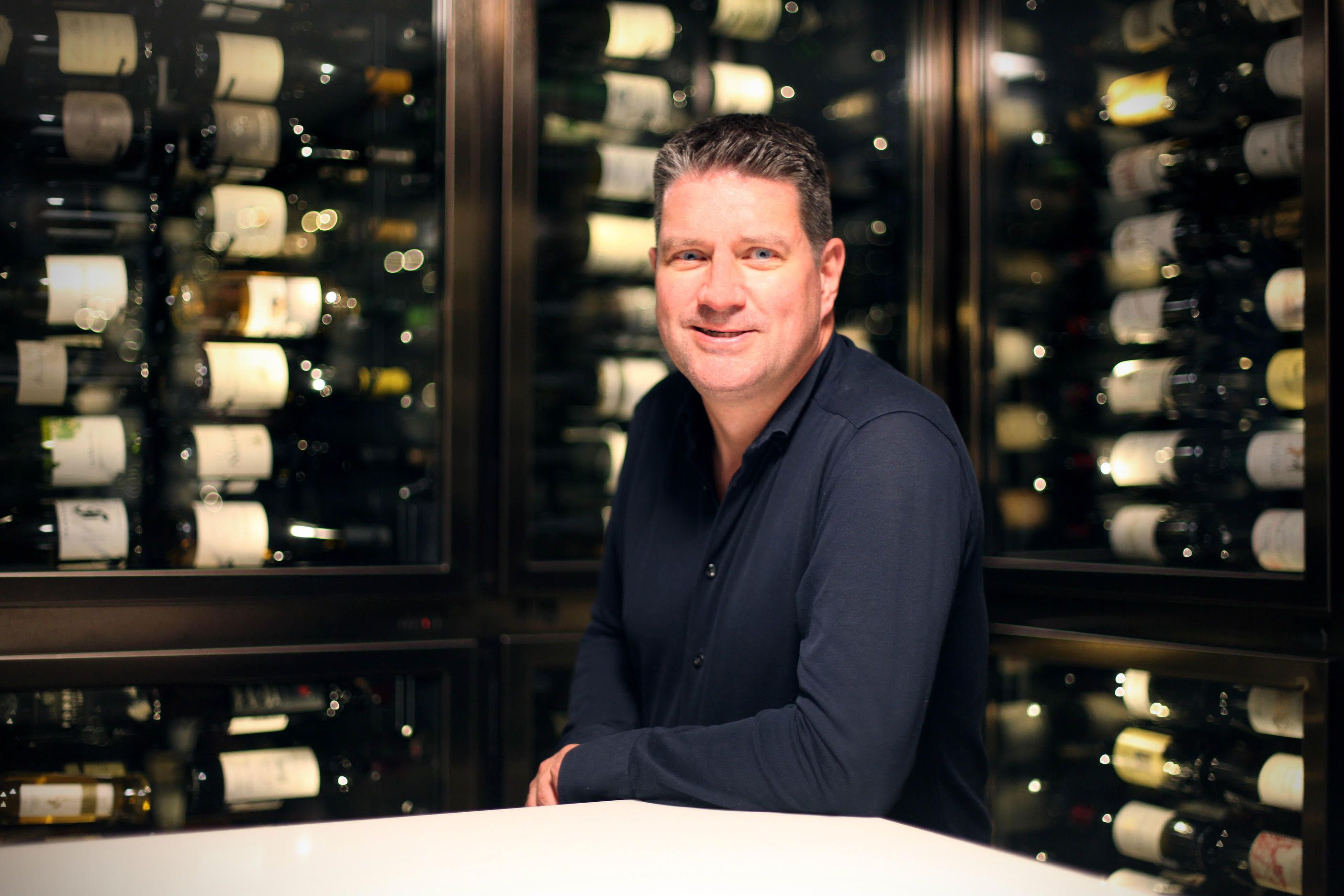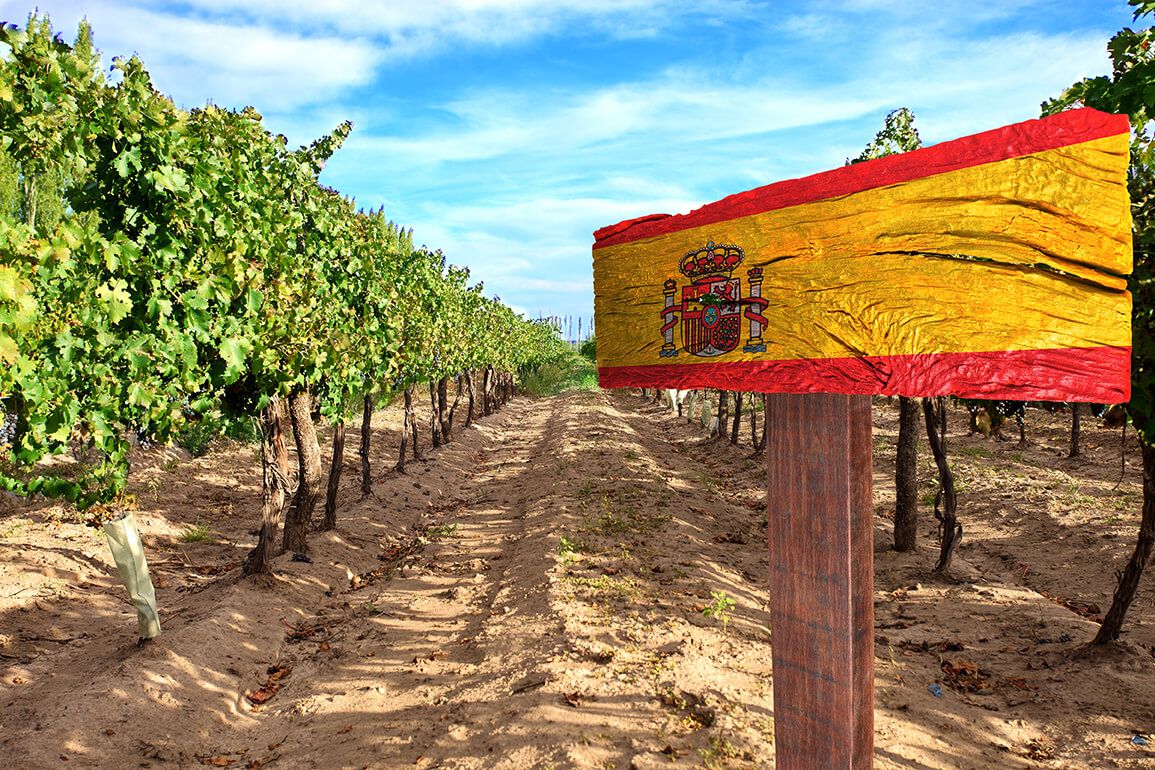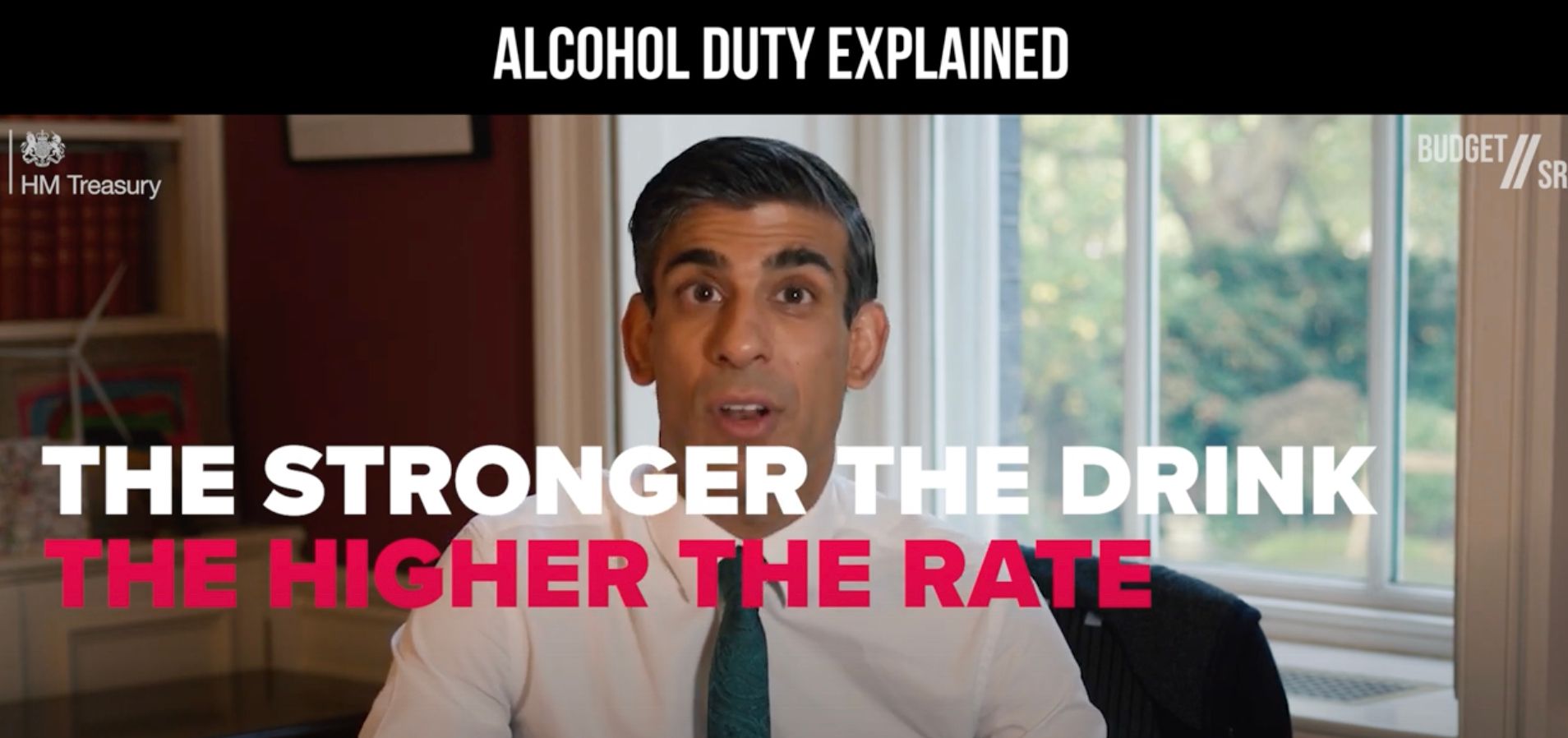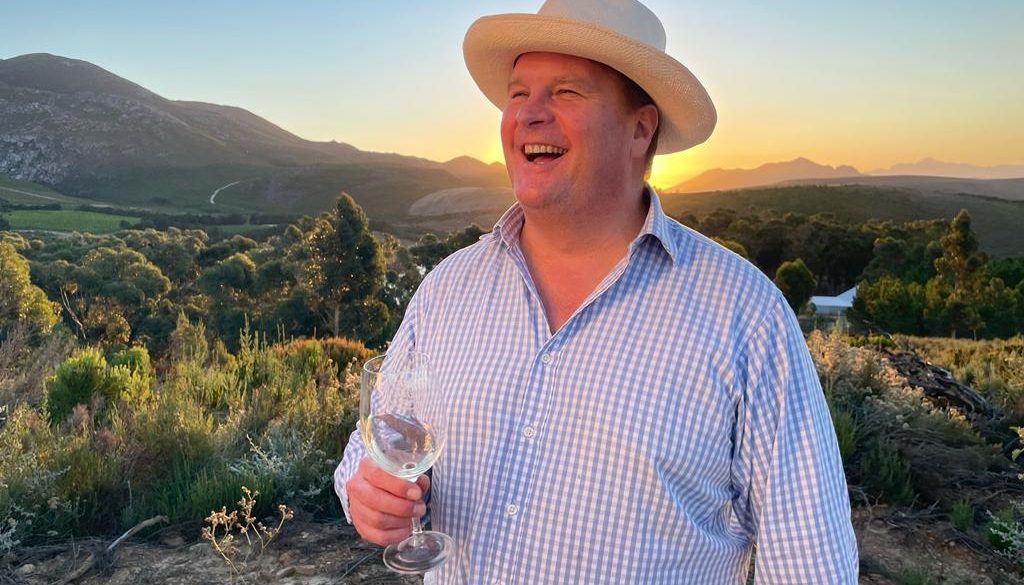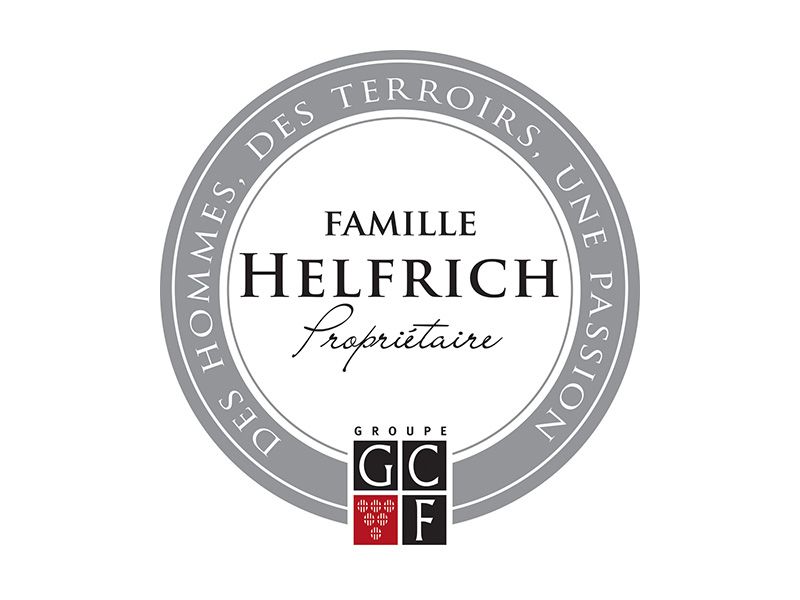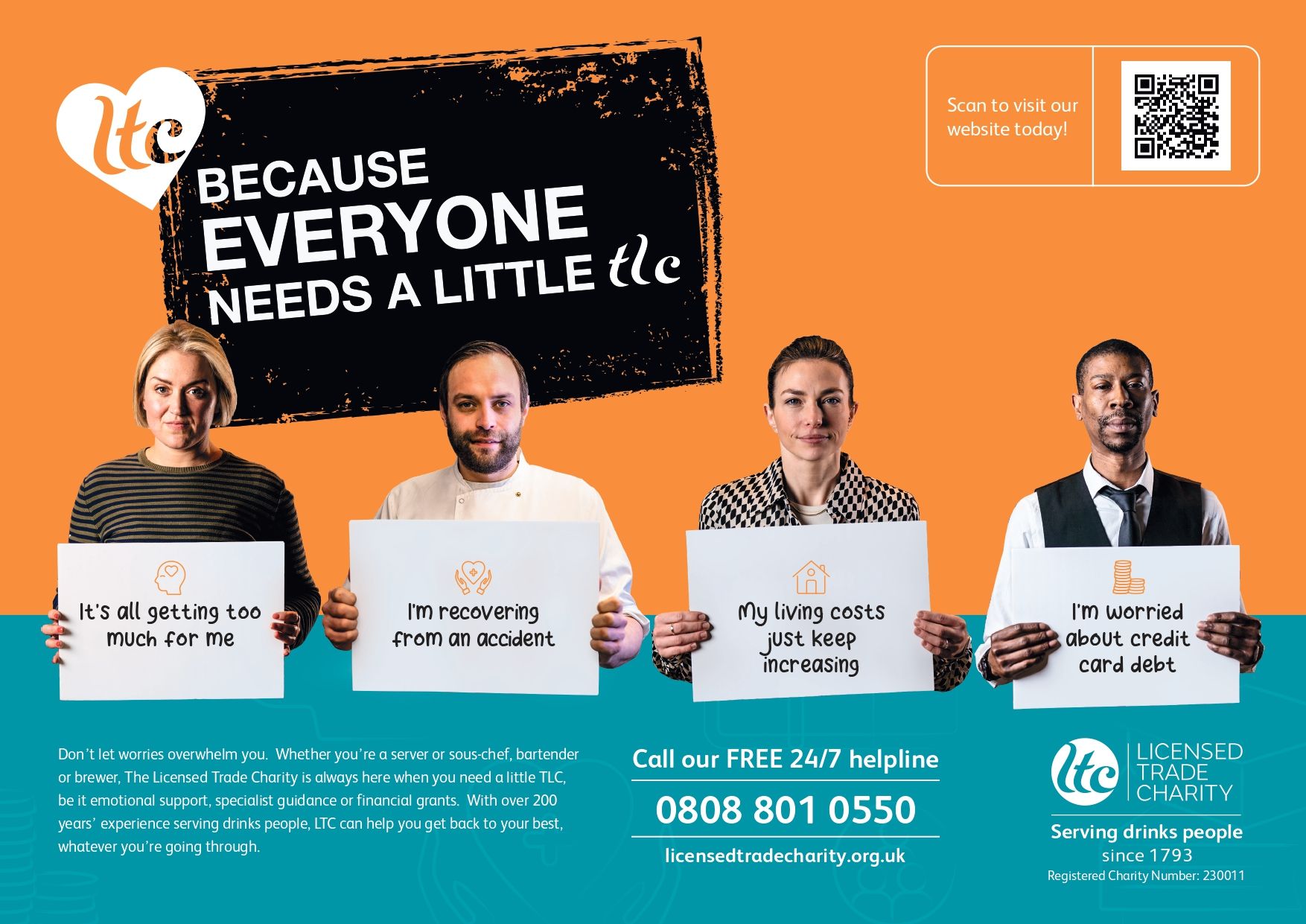C&C’s ESG division reads like a combination of letters you could only come up with on Countdown, but what it is doing is potentially setting standards for the rest of the drinks industry to follow.
I did not get to find out just how well I had done in the Bulmers health and safety induction test, but just going through the whole process of watching the five minute video and then trying to remember what was I was told made you fully appreciate that this is a business that takes its safety and quality responsibilities very seriously indeed.
It also put me in the right frame of mind for my visit and the chance to see, in detail, just how the whole Bulmers cider production process works – from the bees in the nearby orchard to the final bottling and packing lines – and how every step in that process is meticulously analysed and adapted to be as environmental and sustainable as possible.
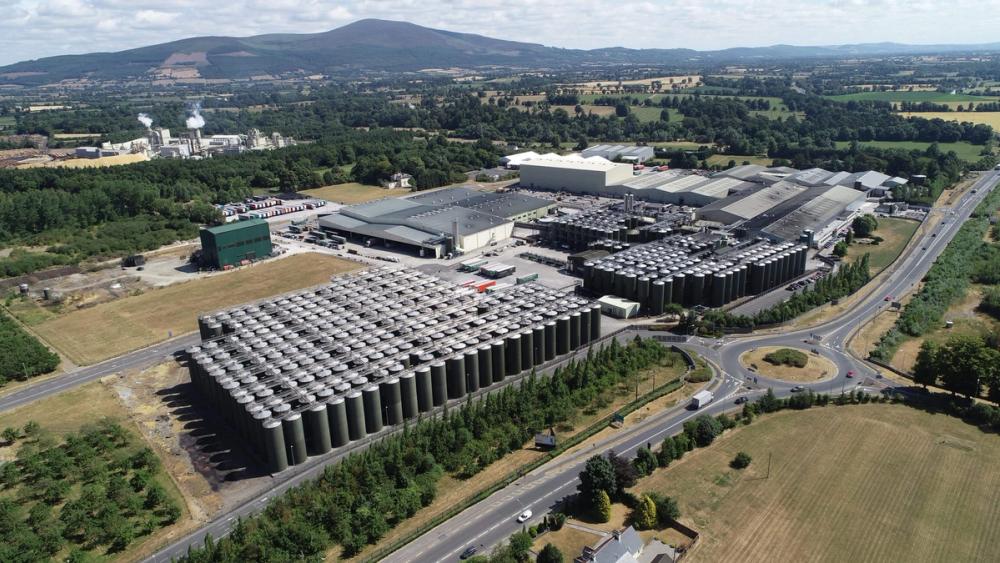
Cider here, there and everywhere at Bulmers’ main production site in Clonmel in Ireland
These are also not new procedures introduced to help hit new corporate environmental targets but have been part of how Bulmers has been making its ciders for decades. The big difference now is the level of investment, time and attention being made at the corporate C&C level to ensure the environmental measures being taken at Bulmers – dubbed the Bulmers Sustainability Project – are fully understood and then potentially adopted in other areas of the C&C Group’s business – and vice versa. Which also includes the production centre for Tennents at the Wellpark Brewery in Glasgow.
Heading up the Bulmers Ireland operation is new general manager, Adriana Vindas, who joined the business from the Costa Rica Brewery, owned by FIFCO, in her home country of Costa Rica in May 2021.
She has been able to make a big impact in the short time she has been there. The strong teamwork and collaboration across the business, she says, has made it much easier to settle in and feel not just part of Bulmers but the overall C&C Group.
Collaboration and teamwork
“There is a huge amount of collaboration and an encouragement to do even more and to be constantly adapting and taking on new, good ideas,” she explains. “To copy with pride.”
George Kyle, C&C’s head of ESG (Environmental, Social and Governance), agrees: “The business can only achieve our ESG vision by collaborating with our value chain. Who can you learn from? Who can you help and educate?”
He adds: “We place a big emphasis on shared knowledge and understanding and we can learn across the group and how we can take a group wide approach.”
The overall ESG strategy, for example, is “developed centrally” but then implemented through each of the business units, brands and operational and management teams, he explains. Any new investment in the business needs to have an ESG benefit. “That way we can have an ESG lens on all aspects of our operation to make sure we are as sustainable andefficient as possible. It is then about sharing those stories to all our colleagues in the group.”

Which is also very much part of C&C’s group strategy for its staff to see themselves working for the bigger group and not being a Bulmers, Bibendum, or Matthew Clark employee.
“It’s part of a shift in emphasis,” says Kyle. Collectively C&C can make its brands better and stronger and the same goes for its people. The steps being taken within its ESG strategy are all good ways “for colleagues to recognise the type of business that C&C is,” he says. “ESG initiatives help do that.”
“We also encourage people in the business to come up with their own ideas, their own green initiatives,” adds Vindas. “The operations teams are the ones on the site who can see the issues for themselves and how to solve them. We see it as very much the culture of the business.”
Energy efficiencies
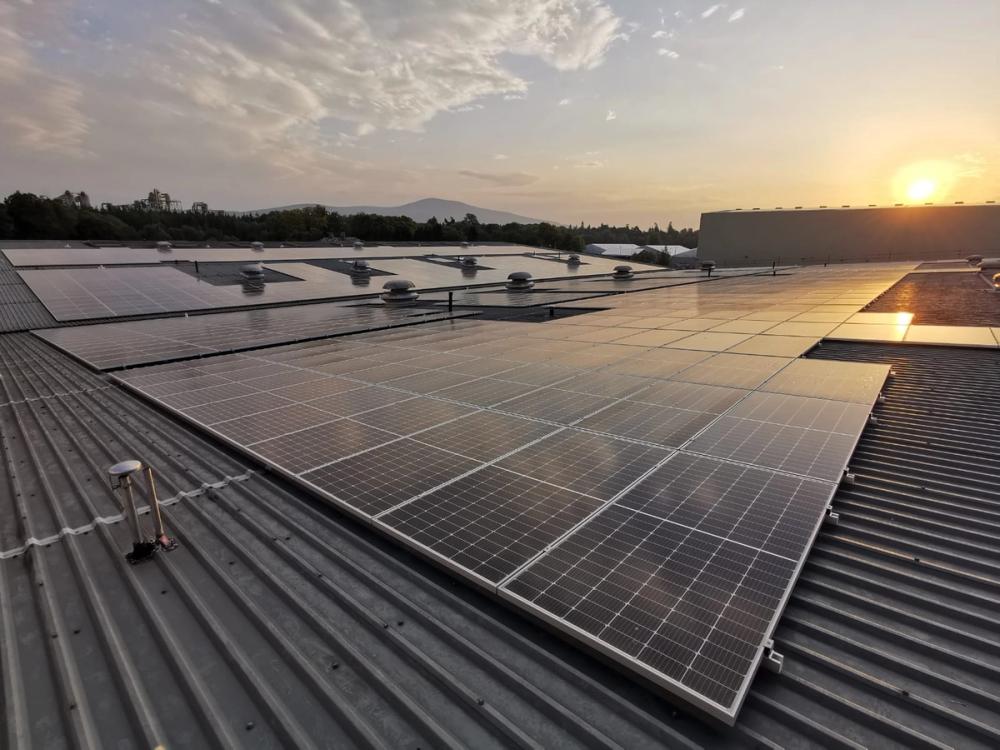
Bulmers claims the solar panels fitted on the roof of its Clonmel site is one of the biggest solar project in Ireland
Making cider and brewing beer is an energy intensive business and C&C is working hard to do what it can at both its Tennents and Bulmers production centres to be as energy efficient as it can.
At Clonmel it has spent the last 18 months installing what it claims is one of the biggest rooftop solar farm projects in Ireland with panels fitted on top of its main production areas which will reduce the Clonmel site’s carbon emissions by 4%, saving 286,746kg of CO2 per year and almost 10 million kgs over the next 20 years. It can also provide enough energy to power the equivalent of 550 homes. The solar panels provide 10% of electricity used onsite, meaning 100% of the electricity used in the Bulmers manufacturing facility in Clonmel is provided by renewable sources.
It has also invested in water treatment plants at both Wellpark and Clonmel which it says will both “reduce our sites’ wastewater emissions and improved the quality of our wastewater discharged by c.90%”. The work has also included an upgrade to the pasteurisation control systems at both sites. The new system helped reduce water consumption in Wellpark’s canning operation by 14 million litres per annum. Bulmer’s Clonmel site has also upgraded its drainage and wastewater network to protect the water sources of the surrounding Tipperary countryside.
C&C’s 6 ESG Pillars
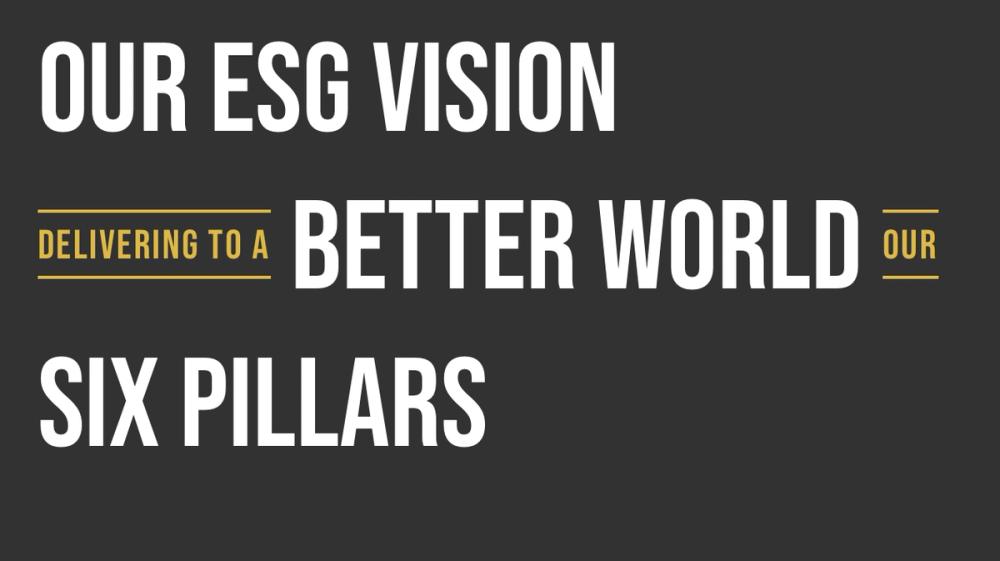
C&C is working to six core pillars to help drive its sustainability agenda
All of which fits into C&C’s overall ESG vision of “Delivering to a better world”, which will be achieved by focusing on six key pillars:
1 Reduce its carbon footprint and to be carbon neutral by 2050. To achieve that it has set its emissions reduction targets and is committed to reducing its Scope 1 and Scope 2 GHG emissions by 35% and its Scope 3 GHG emissions by 25% by 2030 based on its 2020 figures. To help achieve that it is committed to work with its suppliers and customers, who make up 67% of Scope 3 emissions (Purchased Goods, Downstream Transport and Use of Sold Goods), that they will have science-based targets in place by 2026.
2 Sustainably source its products and services.
3 Ensure alcohol is consumed responsibly with roll out of 0% brands across its ranges and support for charities – most notably its new The Big Issue partnership – Portman Group and Drinkaware.
4 Enhance health, wellbeing and capability of its colleagues with a number of learning and development programmes, and health and wellbeing support systems.
5 Build a more inclusive, diverse and engaged C&C business.
6 Collaborate with the government and NGOs on major issues such as Scotland’s now stalled Deposit Return Scheme and Minimum Unit Pricing in Ireland.
To achieve its targets C&C is working with a number of leading climate change agencies including CDP and the Science Based Targets initiative (SBTi), who validated C&C’s emissions reporting and reduction targets in January 2023. .
Other key measures the C&C group has taken include:
- Trialling using electric vehicles for its delivery network and looking at alternative fuel types. C&C saw a 200 tonne reduction in CO2 delivery emissions in 2022.
- €1.4m investment in new heat pump project at Clonmel which could result in a carbon reduction of 40% and saving of 4,000 tonnes a year.
- Whilst politicians scratch their heads over how a bottle return scheme can work, Bulmers has been running a successful returns operation for years. Taking another 1,000 tonnes out of its carbon footprint.
Ethical and social

C&C has forged a working relationship with The Big Issue homeless charity to see how it can help as a business, but also how its members of staff can also get involved and share their skills and expertise
C&C’s ESG strategy is also looking at the steps it can take in society and local communities which very much fits into its new partnership with The Big Issue homeless charity. Rather than just write a big cheque, C&C is working with the Big Issue in a number of ways including offering C&C staff the chance to go and work directly with the charity, either helping to sell magazines on the street, or sharing their skills and experience to help the overall Big Issue team – be it in marketing, accounting, or other areas of its business.
“It is also about putting employment pathways in place for Big Issue vendors and offer them a potential place to work,” says Kyle.
This is very much aligned with C&C’s approach to brand partnerships and sponsorships, he adds. To look at how C&C can use its skills to help its partners and their brands and people and, where possible, include a charity within that.

Magners worked with Celtic Football Club to create a limited edition to celebrate the Lisbon Lions and help raise money for the club’s charity foundation
Its support of Celtic Football Club, for example, in 2017, to support its charity foundation, Magners produced a limited edition cider that celebrated the 50th anniversary of theLisbon Lions and their achievements in being the first British team to win the old European Cup. It’s the same with Scottish Rugby and how it can use that to support affiliated charity initiatives.
It has put measures in place that now allow C&C staff to take time off work to volunteer and go and work for one of its business partners. “Colleagues can also support charities of their choice, particularly as it can also help improve their own physical and mental health and help with their learning and development as an individual,” says Kyle. “Getting good by being good.”
There are also the steps being taken around improving C&C’s diversity and inclusion. Vindas is a good example of the company bringing someone in from a different background and promoting her to a leadership position, she says.
Bulmers – leading by example
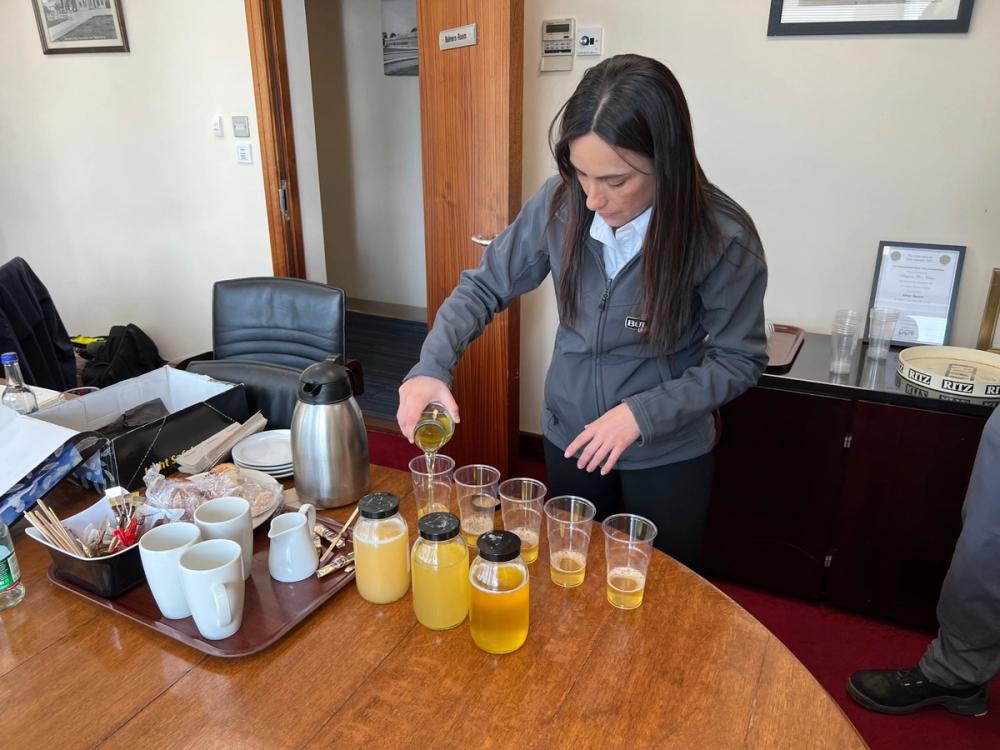
Adriana Vindas has switched from making beer in Costa Rica to running the Bulmers operation in Ireland
Not only has Adriana Vindas got to keep on top of all the new environmental ways of working she has got to get used to making cider, because before joiningthe company she did not even know what cider tasted like.
“The whole process is similar to beer. The fermentation is the same. The big difference is crushing the apples,” she says. “I have had to train myself to be really able to identify the different flavours that each apple variety brings to the cider. I think that coming from the brewing industry helped me to understand better the cider process, it’s a lot easier”.
Bulmers is prepared to do what it takes in order to make the best high volume, quality cider it can. Which includes maturing fresh apples in tanks for up to 18 months in order to get the exact flavour profiles it is looking for. Which is probably the reason the locals around Clonmel refer to Bulmers as “Clonmel Chardonnay”.
The key words here are “fresh apples” and whilst other cider producers might use mostly apple concentrate in their final cider, Bulmers is based on using mainly apples picked direct from the tree. Which means managing a lot of trees and orchards.
On average it will handle between 22,000 and 32,000 tonnes of apples from up to 100 growers all over Ireland, with the majority, 60% based in Northern Ireland. Bulmers also owns and manages 165 acres of its own orchards, which are situated within three miles of its base in Clonmel, County Tipperary, but only account for around 4% of Bulmer’s total production.
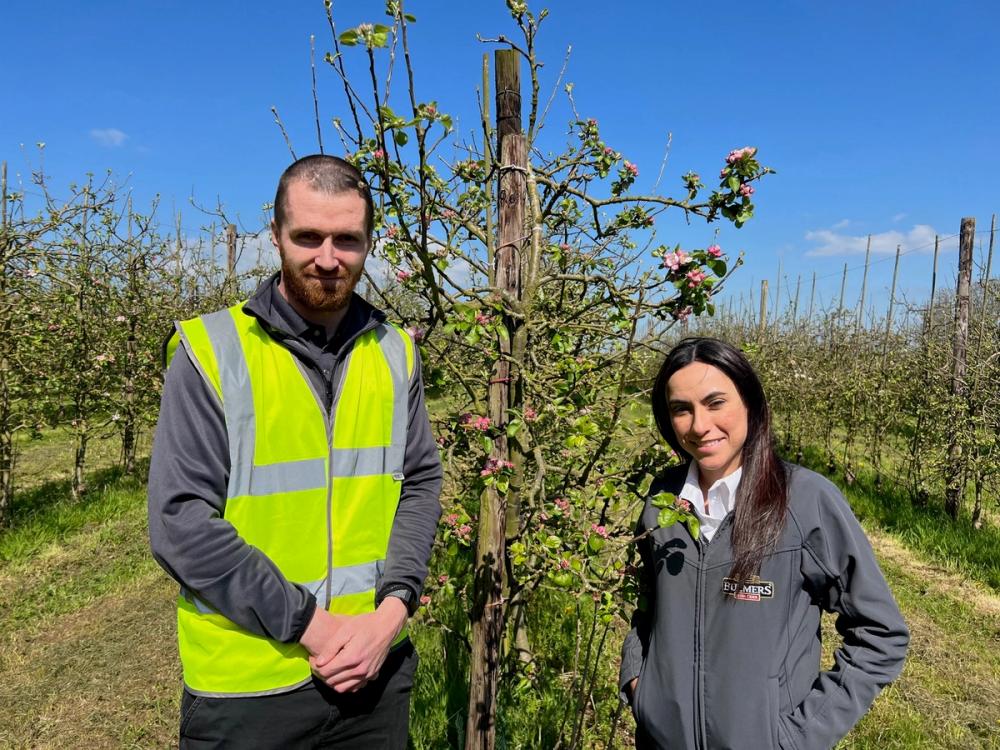
Bulmers’ John Needham and Adriana Vindas in one of the orchards it owns close to its production centre in Clonmel in Ireland
“We work closely with our growers to make sure they are using the right treatments and treating the trees in a sustainable way,” says John Needham, who manages the relationships with growers and helps plan and prepare the apples for harvest with an acre of apples capable of producing up to 10 tonnes of fruit.
The key harvest period is between August and December, with different varieties picked at different times – with sweeter apples the last to come into the production centre.In all Bulmers works with 17 varieties of apple, with each type bringing its own unique qualities to the final blend.
“We will talk to our growers throughout the year to get an idea of what they think the tonnage is going to be,” he adds.
Bulmers and bees
But the apple is actually not the most part of the Bulmers supply chain. That happens to be your average honey bee. For, as its slogan says: “Bulmers Always Begins with a Bee”.
“If we did not have bees we would not have Bulmers,” says Needham.
For it is the honey bees that work hard to pollinate the apple trees and bring the apples to life – with each bee capable of pollinating trees up to a mile away.
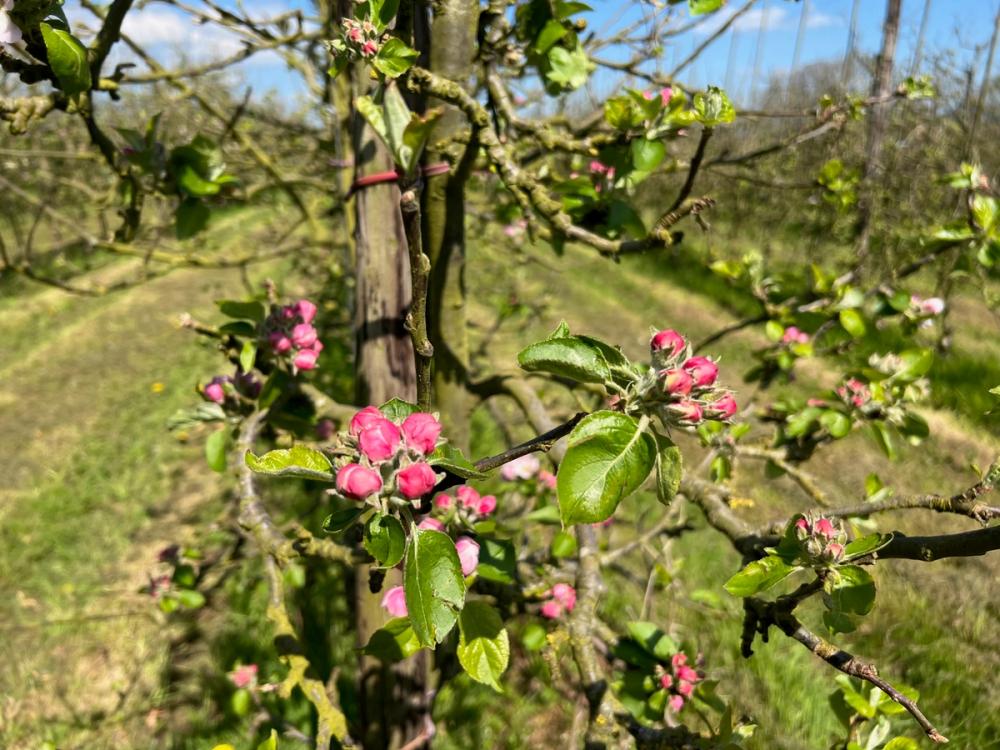
Bulmers works with the All-Ireland Pollinator Plan and local beekeeper associations to ensure its orchards are well populated with bees to help with pollination
It’s why Bulmers and C&C has such close ties with local beekeeper groups with C&C being a patron of the All-Ireland Pollinator Plan and a patron of the South Tipperary Beekeepers Association, which helps to protect and promote beers in its Redmonstown orchard. It works with the bee associations to upkeep the 13 kilometres of hedgerows that surround its own orchards in Clonmel in order to protect the bee life and other pollinators in the area. It is looking to plant over 2,000 trees across the country to help with biodiversity and pollination.
It has also given away 1,000 apple trees to Bulmers customers in Ireland for them to plant in their own gardens and that way create its own “pollinator pathway” network across the country.
Which goes to show if you really want to understand how a business like Bulmers works, it really does come down to knowing your birds and bees. Whether you pass the health and safety induction exam or not.
- To find out more about C&C and its ESG strategy click here.
- C&C Group is a supplier partner to The Buyer.
